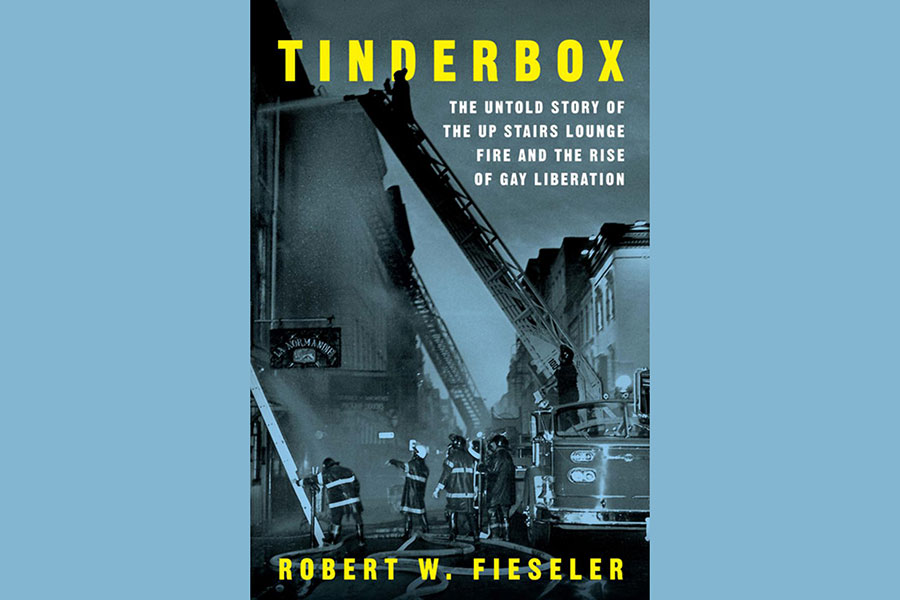Author Robert Fieseler’s new book, “Tinderbox: The Untold Story of the Up Stairs Lounge Fire and the Rise of Gay Liberation” dives deep into the events leading up to and the aftermath of the Up Stairs Lounge Fire, a tragic and unsolved arson that claimed the lives of 31 men and one woman on June 24, 1973, the largest mass murder of gays until the Pulse Nightclub Shooting in Orlando in 2016.
The Up Stairs tragedy went largely ignored until the mid-2000s for reasons the book explores in great detail. PGN spoke to Fieseler about the insights about the era he was able to uncover in the writing and documentation of this important piece of LGBT history.
PGN: Why did a tragedy of the scale of The Up Stairs Lounge Fire go forgotten and unrecognized for what it was for so long?
RF: The Up Stairs Lounge fire was swept under the rug during its era, which was 1973, primarily due to straight constituencies and then-closeted gay constituencies in New Orleans being uninterested in any kind of mass reporting of a large-scale tragedy involving gay men. This was a period of time when homosexuality was almost a taboo topic in the New Orleans media and the national mainstream media. It would really raise eyebrows if you were to report anything involving the homosexual community that wasn’t about arrests or anything of the like. It was the deadliest fire in New Orleans history — 32 deaths. It was initially presumed to be an amazing story. It was front page news for a few days. Then when it became clear who died and the nature of the location that had burned, that these were homosexuals who burned in a homosexual bar, then the stories dried up. It was a time period where people weren’t quite ready to discuss anything on the level of a gay tragedy.
PGN: What do you think the younger generation can take away from reading this book?
RF: The dominant social institution governing LGBT life was the closet, so it would be difficult to understand that the closet succeeded in shunting something under the rug so successfully from the context of a society where the closet still ruled. Whereas in the 21st century you got to the decriminalization of sodomy laws, it started to speak more to an open society that was increasingly curious about the mysterious deadly event that occurred in New Orleans. New Orleans has a wonderful storytelling culture and is fascinated with stories about itself. There were news articles and books and documentaries. It’s a shocking and tragic event in its own right. We’re 15 years removed from Laurence v. Texas in 2003, when the Supreme Court struck down sodomy laws and decriminalized homosexuality. The Upstairs Lounge fire is a really powerful way to look at the what the closet was in American society and how it governed lives.
PGN: Do you think that people will see any parallels to New Orleans circa 1973 and America in 2018?
RF: This alternate gay tragedy which occurred in the past seemed to give the Pulse Nightclub shooting some kind of context. It really did succeed in a surprising way to bring this decades-old history to the forefront. In a strange way, the Up Stairs Lounge fire was seen as an antecedent or some kind of parallel event. They’re not exact mirrors of each other. They share some similarities and they diverge greatly in others.
PGN: What inspired you to write a book about this piece of history?
RF: I’m a subculture reporter, usually. I cover marginalized groups and overlooked people who make the world better for themselves. I’ve covered ghost hunters and their long campaign to reach some sort of legitimacy in their craft. I’m a queer person and I’m fascinated by human rights and civil rights. I was looking for years for a subject within gay rights that has all the levels of complexity where I could delve into the dynamics of the times. That’s what drew me to the Upstairs Lounge fire. It a crime that continues to be unsolved. I wanted to try and tell a story that helped me understand and to help LGBTQ youth and allies to understand what it was like to live in those times where you had to hide yourself on a practical daily basis — what it was like to to in a very oppressive world — and this was a story that took me down those dark avenues.

